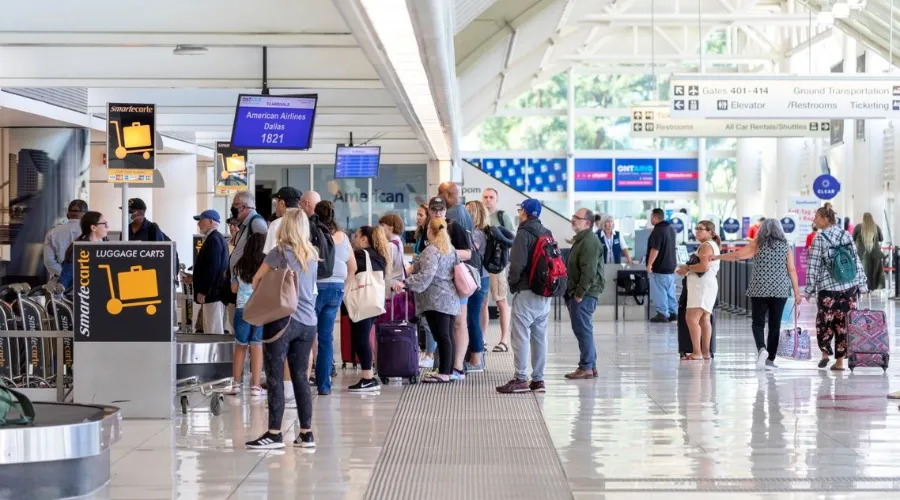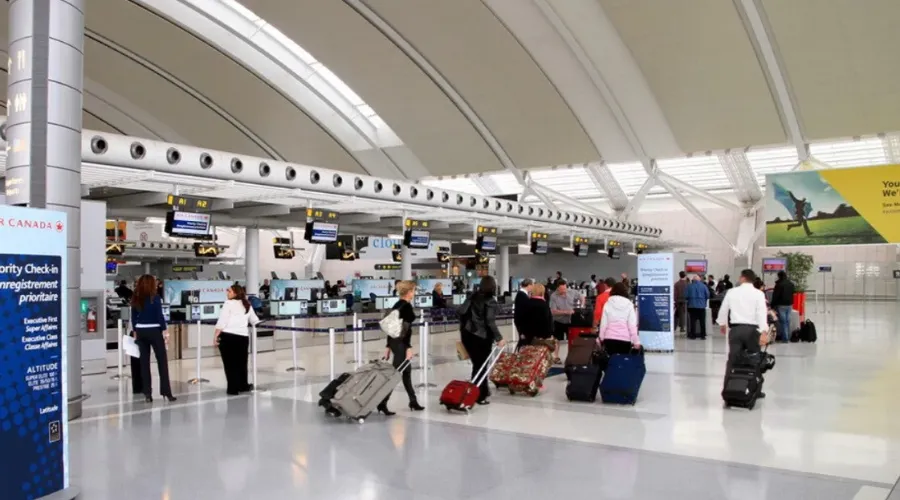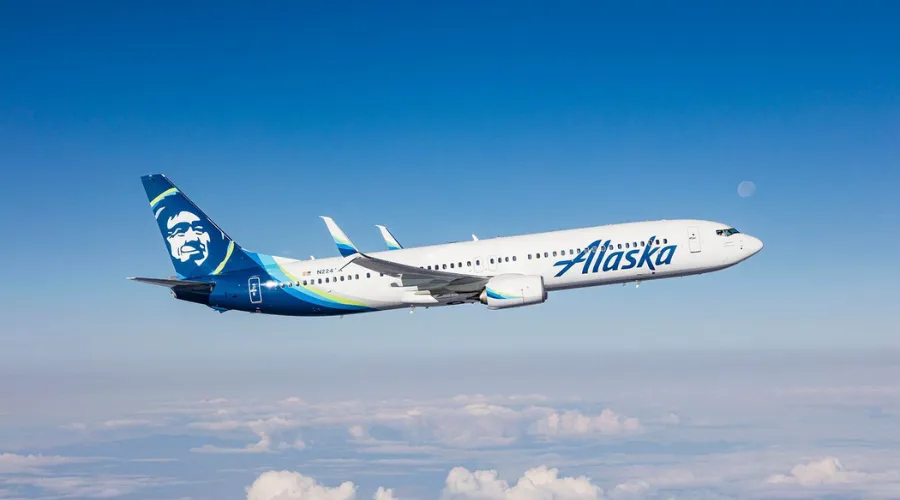Are you gearing up for a journey with Alaska Airlines? If your answer is yes, then diving into their baggage policy is a must. Alaska Airlines offers a generous baggage allowance, including free carry-on and checked bags for most travellers. However, there are a few exceptions to be aware of, making it vital to acquaint yourself with the policy before takeoff. This blog post is your go-to guide for unravelling Alaska Airlines flights’ baggage policy.
We’ll walk you through the ins and outs, covering topics from carry-on and checked bags to rules for oversized and overweight items, special belongings, fees, refunds, and exemptions. Plus, we’ve got some handy tips to help you sidestep those baggage fees. So whether you’re a seasoned flyer or embarking on your first adventure, keep reading to get all the insights into Alaska Airlines’ baggage policy.
Carry-on Baggage
Carry-on baggage refers to the luggage you’re allowed to take on the plane and store in the overhead bin or beneath the seat in front of you. Alaska Airlines’ policy for carry-on baggage permits travellers to bring along one bag that adheres to the specified size and weight guidelines:
- Alaska Airlines’ carry on size: 22 x 14 x 9 inches (56 x 36 x 23 cm)
- Alaska Airlines’ carry on Weight: 25 pounds (11 kg)
Things to keep in mind
Here are some key points to remember regarding Alaska Airlines flights’ carry-on baggage policy:
- The dimensions and weight limits for carry-on baggage are closely observed. Your carry-on must fit in the overhead bin or under the seat in front of you. You’ll need to check it and pay a fee if it’s too large.
- Carrying sharp objects, weapons, or flammable liquids in your carry-on is not allowed.
- Passengers are authorised to bring along one carry-on bag as well as a personal item.
- If you’re flying with an infant, you’re allowed an additional carry-on for the infant’s necessities.
How to avoid baggage fees on your carry-on bag?

Here are some tips for avoiding baggage fees on your carry-on bag:
- Opt for a minimalist packing approach for your carry-on.
- Opt for a soft-sided bag that can be easily compressed if needed.
- Prior to heading to the airport, measure your bag to confirm it aligns with the size criteria.
- If you’re checking a bag, pack your carry-on with vital items required during the flight.
Checked Baggage
Checked baggage is luggage that you check with the airline at the airport, and they will load it into the cargo hold of the plane. Alaska Airlines flights’ checked baggage policy allows passengers to check two bags that meet the following size and weight requirements:
- Size: 62 inches (157 cm) total linear dimensions (length + width + height)
- Weight: 50 pounds (23 kg) each
Things to keep in mind
There are some exceptions to the free checked baggage allowance. For example, passengers who are flying basic economy fares are only allowed one free checked bag. And passengers who are flying to or from Hawaii are only allowed one free checked bag per person. Here are some other things to remember about Alaska Airlines flights’ checked baggage policy:
- The size and weight requirements for checked baggage are strictly enforced. If your bag is too large or heavy, you must pay a fee.
- You are not allowed to bring any sharp objects, weapons, or flammable liquids to your checked baggage.
- You are allowed to check two bags per passenger.
Also Read: Airports in New York: Transportation, Amenities, Pros & Cons
How to avoid baggage fees on your checked bag?

Here are some tips for avoiding baggage fees on your checked bag:
- Pack your checked bag light.
- Use a hard-sided bag that is less likely to be damaged.
- Mark your checked bag with your name and contact information.
- Pack fragile items in your carry-on bag.
- If you are bringing any special items, such as sports equipment or musical instruments, contact Alaska Airlines flights in advance to make sure they are properly packed and labelled.
Overweight and Oversize Baggage
Alaska Airlines flights have a strict policy on overweight and oversize baggage. Bags exceeding the size or weight limits for carry-on or checked baggage will be considered overweight or oversized and may be charged a fee.
- Overweight baggage: Baggage that weighs more than 50 pounds (23 kg) each will be considered overweight and may be charged a fee of $100 per bag.
- Oversize baggage: Baggage that measures more than 62 inches (157 cm) in total linear dimensions (length + width + height) will be considered oversize and may be charged a fee of $200 per bag.
How to avoid baggage fees on your overweight and oversize bag?
Here are some tips for avoiding overweight and oversize baggage fees on Alaska Airlines flights:
- Check the weight of your bags before heading to the airport.
- Pack your bags tightly to reduce their weight.
- If you are unsure whether your bag is overweight or oversize, ask an Alaska Airlines employee to help you.
Special Items
Alaska Airlines flights allow passengers to bring a few special items on board without counting them towards their baggage allowance. These items include:
- Diaper bags
- Medical equipment
- Musical instruments
- Sports equipment
Passengers bringing any of these special items should contact Alaska Airlines in advance to ensure they are properly packed and labelled.
Baggage Fees
Alaska Airlines flights charge a fee for checked bags that exceed the free baggage allowance. Baggage fees can be paid online, at the airport, or by phone. Passengers who pay for their baggage in advance will receive a discount. Here is a table of the baggage fees for Alaska Airlines flights:
| Number of bags | Fee | Fee when paying in advance |
| 1st checked bag | $30 | $25 |
| 2nd checked bag | $40 | $35 |
| Additional checked bags | $100 | $75 |
Refunds and Waivers
Alaska Airlines flights will refund baggage fees in certain cases, such as if your flight is cancelled or delayed. Baggage fees will also be waived for passengers who are members of the Alaska Airlines Mileage Plan elite status levels.
Here is a table of the baggage fee refunds and waivers for Alaska Airlines:
| Situation | Refund or Waiver |
| Flight cancelled or delayed | Baggage fees will be refunded. |
| Alaska Airlines Mileage Plan elite status | Baggage fees will be waived for Mileage Plan elite status levels members. |
| Military personnel | Baggage fees will be waived for active-duty military personnel and their dependents. |
Also Read: Explore The 5 Best Hotel In Phuket 2023
How to avoid Alaska Airlines flights’ baggage fees?
There are a few things you can do to avoid paying baggage fees on Alaska Airlines flights:
- Pack light. The fewer bags you have, the less you will have to pay in baggage fees.
- Pack your carry-on bag with the essentials that you will need during the flight. This will free up space in your checked bag for other items.
- Pack your checked bag light. This will help to reduce the weight of your bag and the chances of it being overweight.
- Use a hard-sided checked bag. Hard-sided bags are less likely to be damaged during handling.
- Mark your checked bag with your name and contact information. This will help ensure that it is returned to you if lost.
- Put fragile items in your carry-on to keep them safe from damage.
- If you are bringing any special items, contact Alaska Airlines in advance. They can help you to determine if the items are allowed on board and if there are any special requirements for packing them.
- Pay for your baggage in advance. You will receive a discount if you pay for your baggage in advance.
- Become a member of the Alaska Airlines Mileage Plan elite status levels. Members of the Alaska Airlines Mileage Plan elite status levels are allowed to check more bags for free.
Conclusion
Now that you know everything you need about Alaska Airlines flights’ baggage policy, you can start planning your trip confidently. Just remember to pack light, use a soft-sided carry-on bag, and measure your bags before you go to the airport. By following these tips, you can avoid paying baggage fees and travel stress-free. And remember, if you are a member of the Alaska Airlines Mileage Plan elite status levels, you will qualify for baggage fee waivers. So if you fly often, upgrading your status might be worth it. For more such updates, visit Nomads Column.

